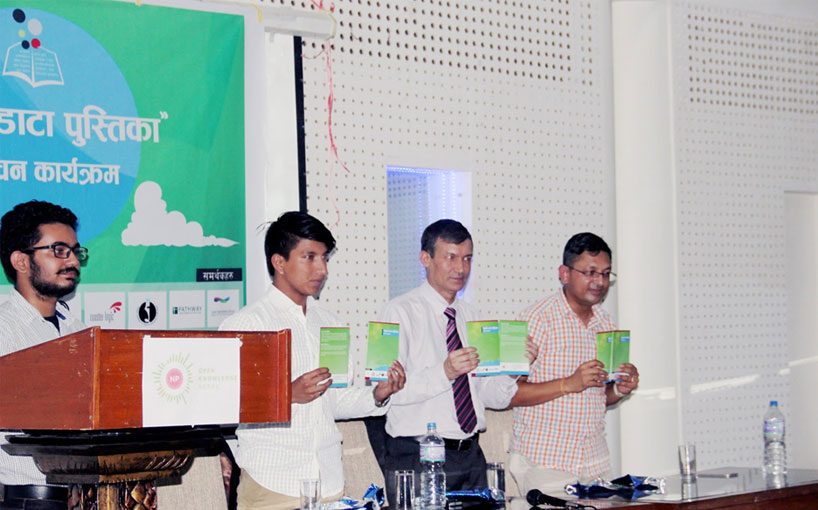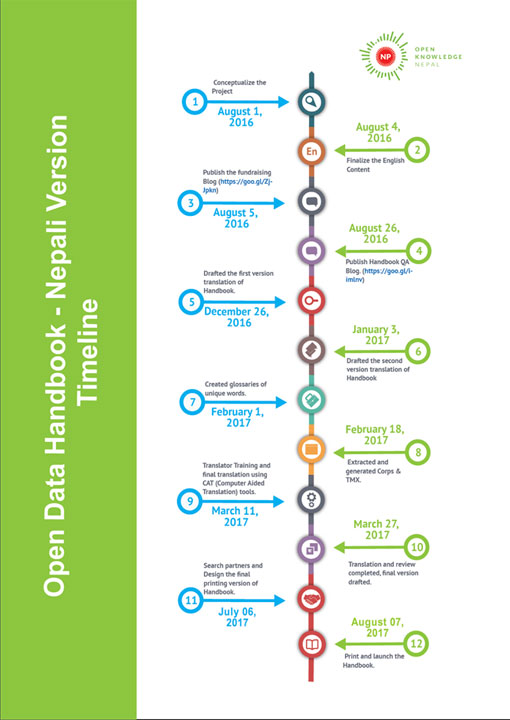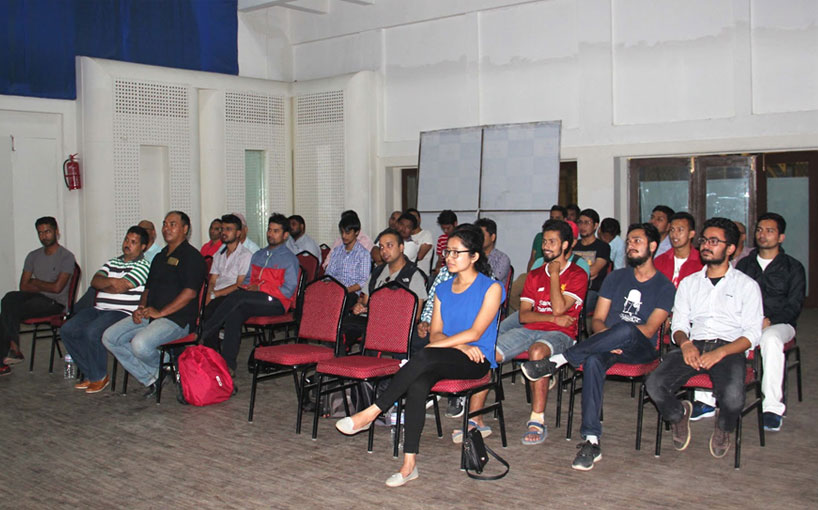
Nikesh Balami I 7 Sept. 2017
Open Knowledge Nepal launched the first version of Nepali Open Data Handbook - An introductory guidebook used by governments and civil society organizations around the world as an introduction and blueprint for open data projects. The book was launched by Mr. Krishna Hari Baskota, Chief Information Commissioner of National Information Commission, Dr. Nama Raj Budhathoki, Executive Director of Kathmandu Living Labs and Mr. Nikesh Balami, CEO of Open Knowledge Nepal at the event organized at Moods Lounge, Bluebird Mall, Kathmandu. Around 50 people working in the different sectors of open data attended the launch program.
The English version of Open Data Handbook is originally written and managed by Open Knowledge International, a global non-profit organization focused on realizing open data’s value to society by helping civil society groups access and use data to take action on social problems. The Handbook has been translated into more than 18 languages including Chinese, French, German, Indonesian, Italian, Japanese, Portuguese, Russian, Spanish and, now, Nepali. All languages are available here.
At the event, a hard copy version of Open Data Handbook was launched, including the content from Global Open Data Handbook, licensing terms from Open Definition, some notable open data projects from Nepal and the process of requesting Information from Nepal’s government using the Right To Information Act.
OKN was able to launch the handbook after patiently working for almost a year, through different discussion, review, and fundraising phases. OKN believes the Nepali Handbook will work as a perfect resource for government and civil society organizations to expand their understandings of open data and, ultimately, reap its benefits.

Open Knowledge Nepal envisions the impact of Handbook to be mainly around the four differents themes of open data: improving government, empowering citizens, creating opportunity, and solving public problems. To achieve impact within these different themes, solely having a good supply of data is not enough. We also need to ensure that the demand side is strong by increasing innovation, engagement, and reusability of published data.
This Handbook will make it easier for government officials and the citizens of Nepal to learn more about open data in their native language. In doing so, it will help create a balanced environment between the supply and demand side of data, which in the long run will help promote and institutionalize transparency, accountability and citizen engagement in Nepal.

The Nepali version of the Handbook is supported by Open Knowledge International, Kathmandu Living Labs, Rooster Logic, Pathway Technology and Services, Local Interventions Group and Citizen Campaigns for Right to Information (CCRI) Nepal.
Explore the handbook from here: http://handbook.oknp.org
Please subscribe us to find out more.